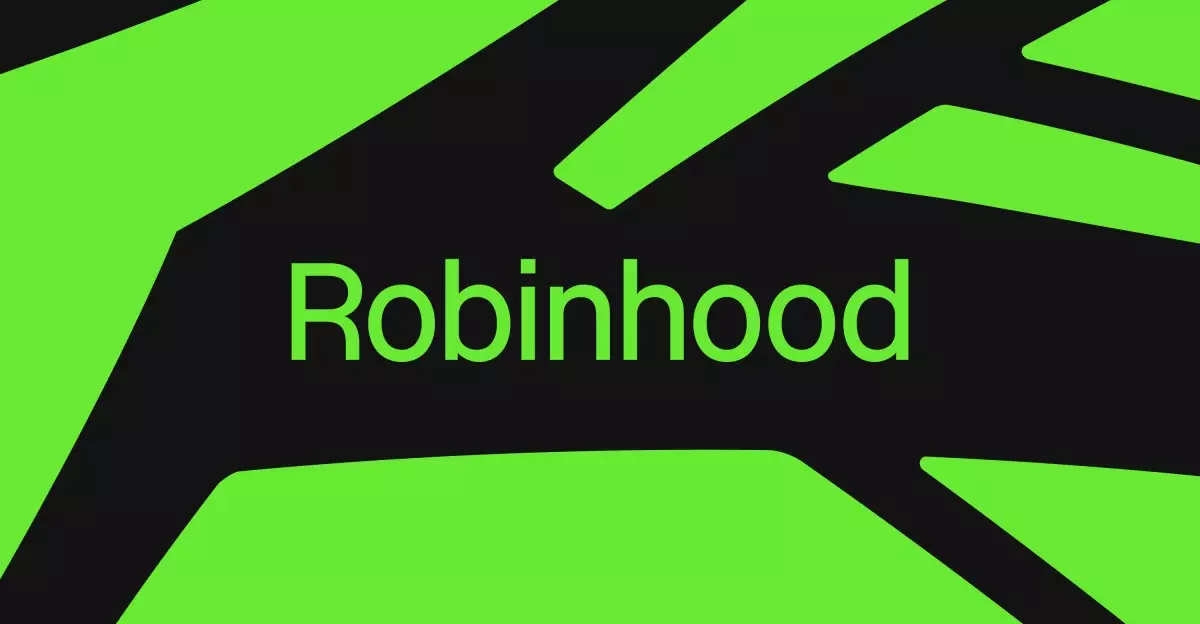Robinhood, once known primarily as a trading platform catering to novice investors, is embarking on a transformative journey to redefine what it means to engage in personal finance. The announcement of their forthcoming online banking service, aimed specifically at Robinhood Gold subscribers, marks a significant leap toward becoming a comprehensive financial institution. Set to launch in the upcoming fall, this innovative platform signifies Robinhood’s ambition to disrupt traditional banking norms while catering to a tech-savvy clientele that values convenience and accessibility.
An All-New Banking Experience
The new service, dubbed Robinhood Banking, promises to deliver a suite of banking functions right from the users’ smartphones. Participants in the Gold subscription plan will soon be able to access checking and savings accounts while integrating these features into the existing Robinhood ecosystem. What sets this banking service apart is its promise of an impressive 4% annual percentage yield (APY) on funds, which outstrips the offerings from many conventional financial institutions and even other digital-centric banking competitors. This remarkable APY not only enhances the attractiveness of the accounts but also positions Robinhood as a formidable contender in a market where low interest rates have become common.
However, Robinhood is walking a fine line between innovation and transparency, particularly regarding the insurance of depositors’ funds. Although Robinhood Banking is not classified as a traditional FDIC-insured institution, it cleverly mitigates risk through pass-through insurance via Coastal Community Bank. While this creative insurance strategy is certainly a valuable safeguard for users, it also necessitates a degree of due diligence on the part of customers to fully understand the implications and any potential limitations that might arise.
Subverting Traditional Banking Models
Deepak Rao, general manager of Robinhood Money, emphasizes that the platform is designed to tackle significant pain points associated with legacy banks. Traditional financial institutions have long been critiqued for their cumbersome processes, opaque fee structures, and inadequate customer service. By offering services like on-demand cash delivery right to users’ residences, Robinhood is attempting to obliterate the inherent inconveniences tied to brick-and-mortar banking. This level of customer focus and inventive service delivery could indeed solidify Robinhood’s status in the rapidly evolving financial landscape.
Additionally, Robinhood is launching Robinhood Strategies, a wealth management platform that complements the new banking service by providing users with access to a mix of stocks and exchange-traded funds (ETFs). With an affordable annual management fee and no complications from navigating various platforms, Robinhood enhances user experience while enabling investment opportunities that were prior unavailable under a single umbrella. This streamlined approach showcases Robinhood’s intent to unify its services and make investment management as straightforward as possible.
AI Meets Investment: The Future is Here
Moreover, the announcement of the AI-powered investment tool, Cortex, for Gold subscribers represents a dazzingly modern application of technology in personal finance management. Cortex aims to provide sophisticated market insights, assisting investors in making well-informed decisions based on real-time data and analyses of stock performance. In a world where minute fluctuations can significantly impact financial outcomes, having access to advanced analytical tools could prove invaluable for users striving to optimize their investment strategies.
The integration of AI into the investment discussion reflects a broader industry trend toward digitization and customization, which is only expected to grow. As more users lean on technology for their financial dealings, Robinhood stands poised to capitalize on this shift, broadening the scope of personalized investment strategies available to consumers.
Building an Ecosystem of Financial Services
Over the years, Robinhood has skillfully transformed from a simple investment app into a multifaceted financial services platform that appeals to a diverse audience. By launching a credit card in 2024 and continuing to expand its banking options, Robinhood encircles customers with an entire ecosystem of financial services, encouraging them to remain within its thriving environment for financial growth. This inclusive approach not only enhances user loyalty but also positions Robinhood as an emerging leader in the future of accessible finance.
As the lines between banking, investing, and daily financial management continue to blur, Robinhood’s innovative moves force competitors to re-evaluate their own service offerings. In a rapidly changing landscape, the company’s willingness to disrupt the status quo while enhancing user experience might just redefine what banking means for a generation increasingly seeking dynamic and tech-driven solutions.

